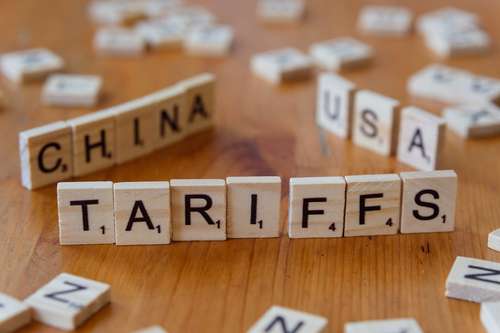According to disaster management experts, the death toll from the earthquake that struck Afghanistan on Wednesday has reached 1,000, with more than 600 people injured. As news from isolated mountain villages trickles in, the death toll is expected to rise.
After the magnitude 6.1 earthquake, images on Afghan media showed that homes had been reduced to rubble and that bodies covered in blankets lay on the ground.
Health and aid workers said an undetermined number of people are still trapped in the rubble and in remote areas. Rescue efforts have also been hampered by challenging weather conditions, such as persistent rain, landslides, and the fact that many villages are tucked away in difficult-to-reach hillside regions.

There are still many bodies buried beneath the ground. An employee of a hospital in the severely damaged Paktika province spoke on condition of anonymity since he was not authorized to speak to the media. "The rescue squads of the Islamic Emirate have arrived and are trying to take out the dead and injured," the employee added.
The hard-line Islamist Taliban authorities, who took control of the nation in August after two decades of war and have been cut off from much outside support due to sanctions, will face a significant challenge in mounting a rescue mission. Rescue efforts are being coordinated by the Taliban-led ministry of defense.
The topography and weather would make it extremely difficult to rescue anybody trapped under rubble, according to Loretta Hieber Girardet of the United Nations' disaster risk reduction office.
The lack of simple access to the area will make setting up a humanitarian operation difficult from the start, she added, adding that rain mixed with the tremor increased the risk of landslides for aid personnel.
The U.N. humanitarian office said it was deploying medical health teams and providing medical supplies.
Interior ministry official Salahuddin Ayubi said the death toll was likely to rise “as some of the villages are in remote areas in the mountains and it will take some time to collect details.”
DEADLIEST QUAKE IN 20 YEARS
The earthquake on Wednesday was the deadliest to hit Afghanistan since 2002. It occurred close to Pakistan's border, around 44 kilometers (27 miles) from the southeast Afghan city of Khost. Geological Survey (USGS), according to.
According to the European-Mediterranean Seismological Centre (EMSC), 119 million people in Pakistan, Afghanistan, and India experienced shaking; nevertheless, there were no immediate reports of damage or injuries in Pakistan.
The USGC reported that the earthquake's magnitude was 5.9, whereas the EMSC reported that it was 6.1.
Inadequately built homes and landslides made the impoverished hillside areas hit by the earthquake particularly vulnerable, according to disaster experts and relief workers.
Gul Faraz, together with his wife and kids, were receiving medical attention for their injuries at a hospital in Paktika when he remarked, "We were all asleep at home... then the room crashed over us." He claimed that a few family members had died.
The entire region has been damaged, not just the houses in our neighborhood.
According to Ayubi, the majority of the reported fatalities occurred in the eastern province of Paktika, where 255 people died and more than 200 were hurt. There were 25 fatalities and 90 hospitalizations in the province of Khost.
Recent floods in numerous areas, which has closed sections of highway, has made things more difficult for Afghan authorities.
A serious economic crisis is also affecting Afghanistan. Many nations put restrictions on Afghanistan's financial industry and reduced billions of dollars in economic aid in response to the Taliban takeover last year.
However, international organizations like the United Nations have continued to provide humanitarian relief. The Taliban would welcome outside assistance, according to a spokesman for the foreign ministry.
U.S. President Joe Biden directed the U.S. Agency for International Development and other federal government partners to assess U.S. response options, the White House said.
U.N. Secretary-General Antonio Guterres said the United Nations was fully mobilized, assessing the needs and providing initial support.
"We rely on the global world to provide aid to the hundreds of families affected by this most recent calamity. The time for unity is now, he declared in a statement.




